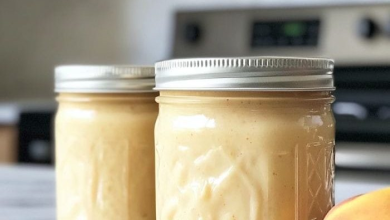I Gave $4 to a Tired Mom at the Gas Station – A Week Later, an Envelope Arrived for Me at Work


I never thought four dollars could mean anything—to me or to anyone else. It was late, the kind of hour when the hum of fluorescent lights drowns out your thoughts and the hot dog roller clicks like a metronome for a song no one’s singing. I was working the night shift at the gas station off Highway 52. Coffee. Cigarettes. Three songs on repeat. I’m Ross—forty-nine, married to Lydia, dad to two kids who burn through shoes like they’re made of paper, and the reluctant owner of a mortgage that always feels a size too small. The factory I gave twenty-three years to shut down overnight. Padlock on the gate. Paper on the fence. “Thanks for your service.” So here I am—just a counter, a cash drawer, and too much time to think.
She came in around 11:30, moving like a prayer—slow, careful, a sleeping boy draped over her shoulder. Hair tied back, sweatshirt faded thin, eyes hollowed by a week’s worth of worry. She made one quiet loop through the aisles and placed three things on the counter: milk, bread, diapers. No extras. No indulgences. I told her the total and watched her count her crumpled bills twice.
“I’m short by four,” she whispered. “I can put the diapers back.”
I didn’t think. I just pulled four singles from my wallet and slid them into the register. “It’s fine,” I said. “Get home safe.”
She didn’t cry. Just nodded, gathered her things, and left. I watched her tuck the boy into a tired old sedan and drive into the dark. Then the station settled back into its hum, and I went back to restocking Marlboros, telling myself it was nothing. Four dollars. A small kindness. No story.
A week later, Jenkins—my manager, who always looks like he’s reading bad news—called me into his office. He handed me an envelope with my name on it. No return address.
Inside was a note and a check. I had to read the amount three times: $5,000, made out to me. The note was written in neat, careful handwriting:
Thank you for helping our daughter, Emily. You got her home safe. This is a small token of our gratitude. Please join us for lunch Sunday—we’d like to thank you properly.
Below was an address from the kind of neighborhood you only see on real estate flyers.
I drove home with the envelope on the passenger seat like it might disappear if I blinked. Lydia was in the kitchen making school lunches. When she saw my face, she set down the knife. I handed her the note and check. Her hand went to her mouth, then my shoulder. “You have to go,” she said softly. “And Ross—I’m proud of you. You didn’t do it expecting anything. That’s exactly why it mattered.”
Sunday came. I changed shirts three times before Lydia swatted my hands and sent me out the door. The house was big, white-fenced, with hedges trimmed to perfection. An older couple waited on the porch like they’d been listening for my car. Robert shook my hand. Margaret hugged me like she’d known me forever.
Inside, the air smelled of roast chicken and fresh bread. We sat down, and they told me about Emily. She’d been married to a man who shrank her world—isolated her, controlled her, cut her off from help. She finally left with her son asleep in the backseat and almost nothing in her wallet. “She didn’t want to call us until she had to,” Margaret said, her voice trembling. “She felt ashamed. Like leaving wasn’t enough if she couldn’t make it all the way home.”
When she came up four dollars short, she thought she’d failed. And then someone—me—said, It’s fine. Get home safe. No questions. No lecture. Just dignity in a sentence.
“She got here and cried,” Robert said. “She kept saying, ‘the gas station man treated me like a person.’” They sent the check because kindness had carried their daughter through her first night of freedom—and they wanted to help carry a bit of what was weighing me down, too.
I told them about the factory closing. About the night shift. About kids who burn through sneakers. They listened like people who understood how thin the line between fine and barely can be.
When I left, Margaret hugged me again. “You’re a good man, Ross. Don’t forget it.”
I kept the check on our dresser for two days before depositing it. We paid overdue bills. Fixed the car that needed a prayer to start. Bought the kids shoes without picking the cheapest pair. But as life-changing as the money was, it wasn’t what stayed with me. It was how a small choice—four dollars and a kind word—had altered the course of someone else’s life.
Back at the station, nothing looked different. But I did. I started noticing things I used to miss: the slump in a construction worker’s shoulders as he counts change for coffee; the panic in a teenager’s eyes when the card reader beeps and the line behind him groans; the mother who keeps one hand on the stroller like the world might roll away if she lets go. I can’t hand out five-thousand-dollar miracles. But I can soften the edges of someone’s hard day.
A few weeks later, a small package showed up at the back door. No return address. Inside was a thank-you card in the same handwriting—and a photo of Emily and her son in their backyard: sunlight, green grass, a dog mid-jump, two people who looked like they could finally breathe.
We’re okay, the note said. Because of a stranger who wasn’t a stranger when it mattered.
Lydia keeps the photo on the fridge with a magnet shaped like a coffee mug. I see it every morning when I pack lunches, every night when I open the fridge to let out the day. It reminds me that the world is a relay—you never know when it’s your turn to carry the next inch.
I still stand under those humming lights. Still mop up spilled soda. Still memorize the barcodes of gum. The roller grill still ticks its stubborn little rhythm. But now, when the door chimes and someone walks in carrying a problem they can’t afford, I remember:
Goodness moves like water—quiet, steady, shaping more than we ever see.
Sometimes it looks like a check for $5,000.
Most of the time, it looks like four dollars and a sentence.
Get home safe.




